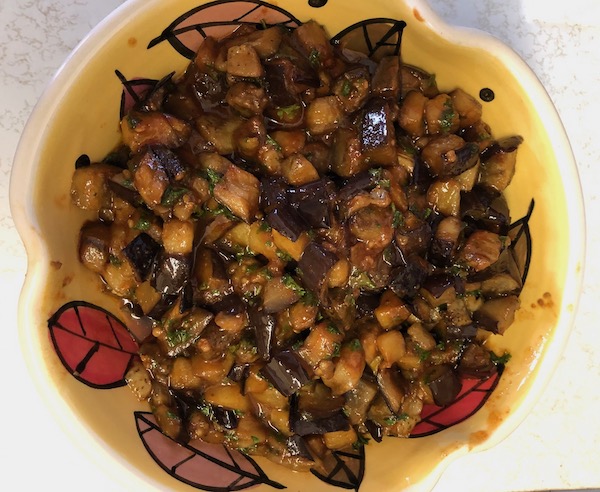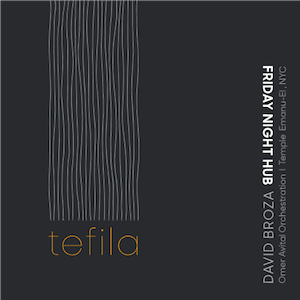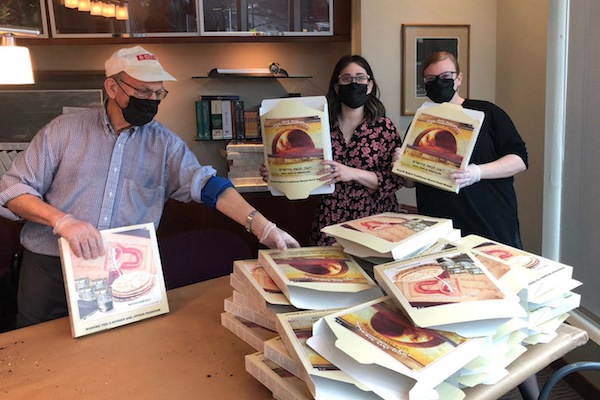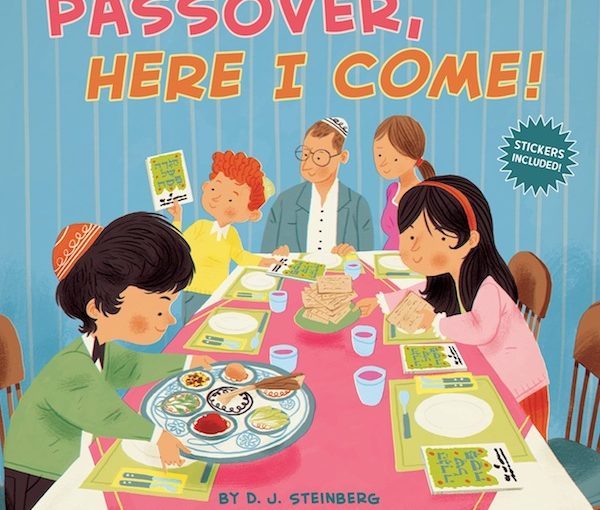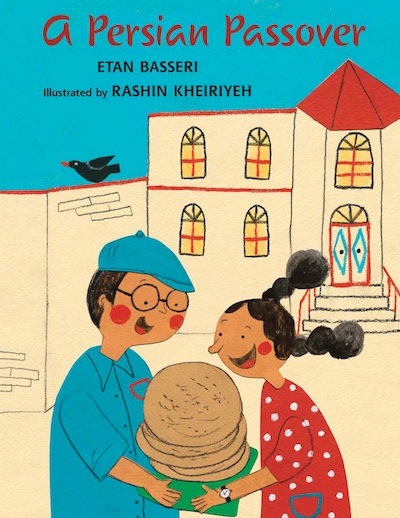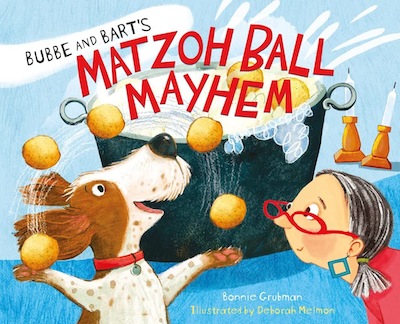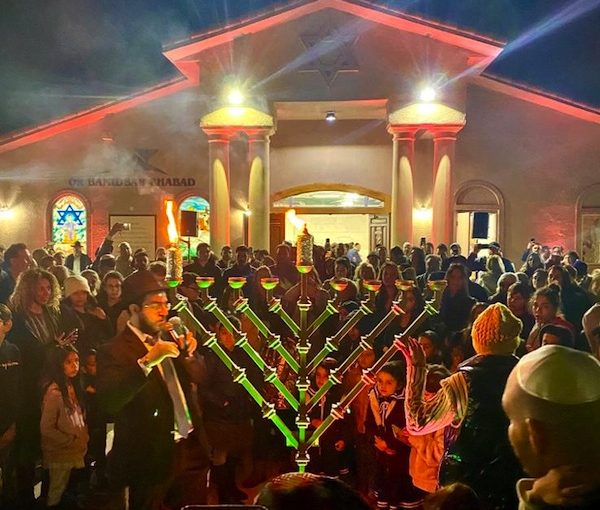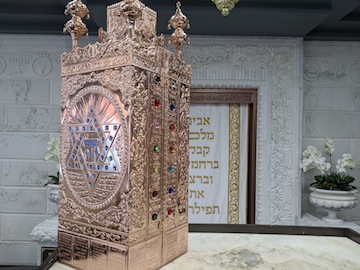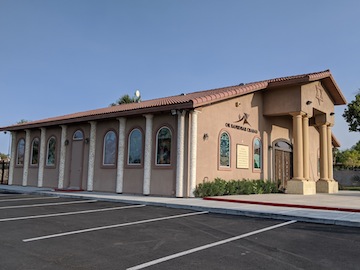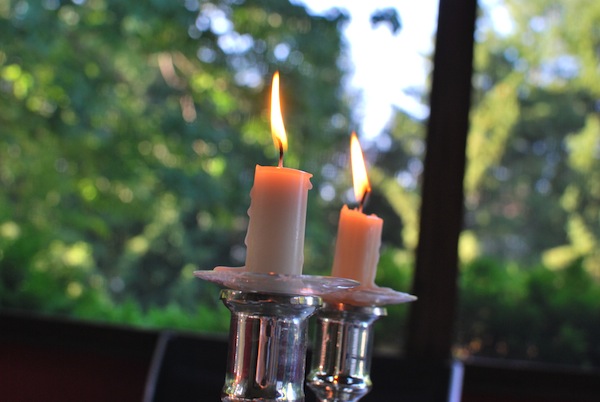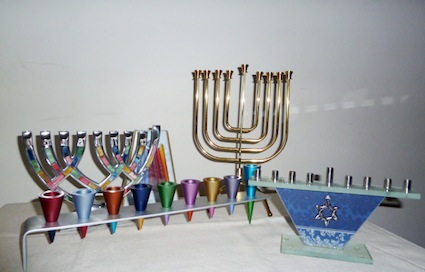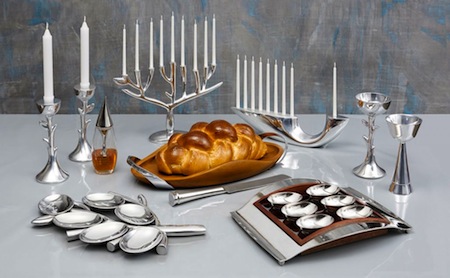Rebbetzin Chanie’s eggplant dish is “super-easy and ridiculously yummy.” (photo by Shelley Civkin)
A recent Shabbat dinner with Rabbi Yechiel and Chanie Baitelman and a few other guests was like waking into the light after being in darkness for three years. The isolation brought on by COVID, compounded by health issues leaving us feeling vulnerable, resulted in Harvey and I spending every Shabbat and all Jewish holidays by ourselves for three long years. It was our first Shabbat “out in the open” and we couldn’t have asked for a warmer or more welcoming environment.
Observant, but not very much so, Harvey and I are used to lighting Shabbat candles, and he always reads Eishes Chayil (Woman of Valour) to me. But that’s pretty much all we do on Shabbat. So it was truly a delight to spend it with the rabbi and Chanie, their two youngest children, and a few others. The Shabbat rituals added much to the sanctity of the evening, and reminded me why we do what we do, and why Jews are G-d’s chosen people. The singing, the chatting – really, just the feeling of being “home” – all contributed to this intimate and freilach (joyous) evening. And then there was the food.
No Jewish celebration is complete without spectacular homemade food. And Chanie hit all the right notes on that count. We started out the meal with a bunch of small dishes, including the best eggplant dish I’ve ever had the pleasure of meeting. There was also baked fish, another eggplant dip, a gorgeous salad, freshly baked challah and an Israeli couscous salad. And that was just to start! Having been a guest at their home before, I knew that this was just the beginning, and that I should pace myself. Juicy, delicious Shabbos chicken followed, along with zucchini and onion quiche.
The star of the show for me, though, was Chanie’s Middle Eastern eggplant dish, which is the stuff that Jewish dreams are made of. People always say delicious food is “to die for!” but, really, the saying should be: “It’s to live for!” Naturally, I asked Chanie for the recipe and she admitted that she doesn’t really use one, which is why it tastes different every time she makes it. I tried to nail her down, as I wasn’t about to let this amazing dish get away. A couple of days later, and after a lot of question-asking and prodding, she relented and texted me the ingredients. No measurements. Just ingredients. Her directions to me were simple: “Just taste it as you go along.” Not unlike what our grandmothers did. But this is not something you say to someone like me, who’s a bit compulsive, and a stickler for a recipe. Needless to say, I was a bit flustered by the meagre directions.
Not to be daunted by a challenge though, I did what I rarely do – I winged it. With great trepidation, I might add. Chanie’s eggplant dish was so spectacular that I just knew I had to figure it out on my own, no matter how many tries it took. And, whaddaya know, I hit it out of the ballpark on the first go! And now, as humbly as possibly, I will share (to the best of my memory) the ingredients and measurements that I recall, and if it doesn’t work out … well … just try again. All measurements are approximate. As if that helps.
REBBETZIN CHANIE’S EGGPLANT
(makes enough for four as a side dish)
3 smallish eggplants, cubed and with skin on
juice of 1 lemon
1/2 tsp cumin
1/2 tsp paprika
1/2 tsp smoked paprika
2-3 cloves minced garlic
2 heaping tbsp tomato paste
2 heaping tbsp honey or date syrup (I used honey)
large handful of parsley, finely chopped
pepper to taste
Dice unpeeled eggplants into small cubes and sprinkle generously with olive oil. Don’t be afraid to use a lot of oil. Then sprinkle with salt. Bake at 375°F. until very soft, about 40 minutes. Turn it halfway through.
While the eggplant is baking, fry up minced garlic in a good amount of olive oil. Once it starts to brown, turn the heat down and add lemon juice, cumin, paprika, smoked paprika, tomato paste, honey or date syrup, and pepper. As you fry it up, taste it and adjust accordingly. There won’t be a lot of sauce but, trust me, the flavour is enough to permeate all of the eggplant.
Once the eggplant is nice and soft, mix it in with the garlic and tomato paste mixture, add the parsley, and you’re good to go. This dish is spectacular on its own, or with challah or focaccia to soak up the oil. It’s great served hot but it’s even better served cold the next day, once the flavours have had a chance to meld and marry. My husband declared it “company worthy” and hopes I’ll make it daily. Nice try, honey.
What I like about this dish is that it’s super-easy and ridiculously yummy – it’s sweet, smoky and slightly tart all at once. It’s also very oily, but that’s part of its Middle Eastern charm. You can adjust the amount you use, as eggplant tends to suck it up like a sponge. In our household though, you can never have enough olive oil.
I served this eggplant dish with steak, but it would go well with pasta, fish, rice, chicken or pretty much anything. Chanie told me that she makes up a big batch of the garlic tomato paste mixture and freezes it, so that when she’s in the mood for eggplant, all she has to do is cube the eggplant, bake it and add it to her defrosted pre-made “sauce” mixture. If I were a store or a restaurant, I’d put a money-back guarantee on this dish. Short of outrageously over-spicing it, you really can’t go wrong. I mean, it’s eggplant after all. The nightshade superstar. Enough said. Go dice your eggplant and call me when it’s done. I won’t take no for an answer. I’ll even bring the bread.
Shelley Civkin, aka the Accidental Balabusta, is a happily retired librarian and communications officer. For 17 years, she wrote a weekly book review column for the Richmond Review. She’s currently a freelance writer and volunteer.

